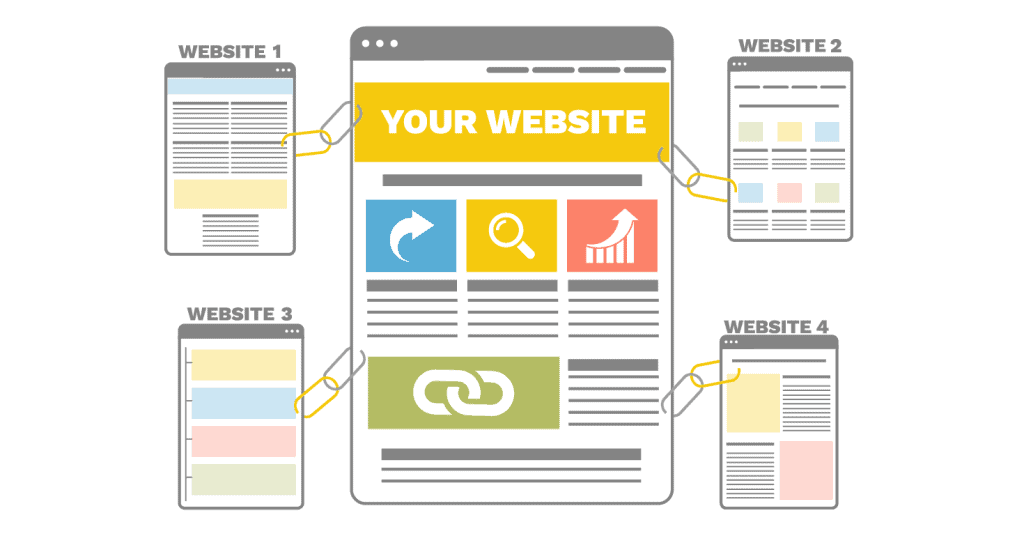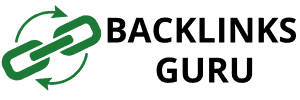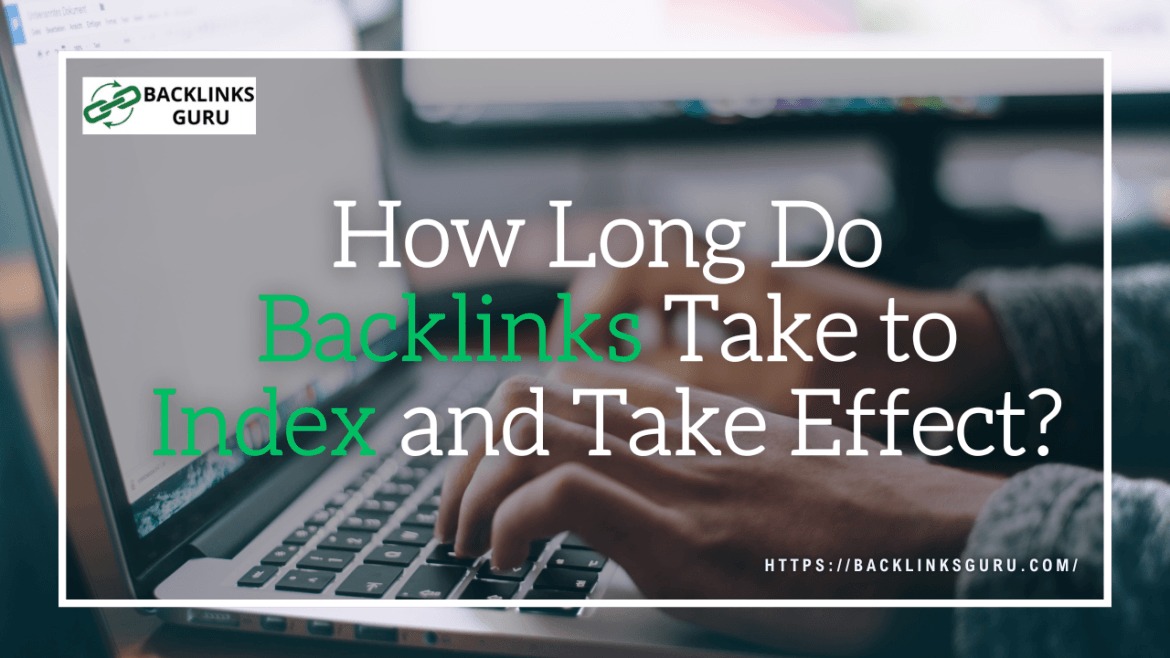Discover How Quickly Backlinks Boost Rankings, What Affects Indexing Speed, and How to Speed Up Results
Backlinks are a cornerstone of search engine optimization. Understanding how long it takes for backlinks to index and ultimately take effect is crucial for anyone engaged in link building. This article explores the factors influencing the timeline and provides insights into optimizing your link building strategy for quicker results.
Understanding Backlinks
What are Backlinks?
Backlinks, often referred to as inbound links, are links from one website to another. Backlinks serve as a symbol of trust in the context of SEO. When a website links to yours, it is essentially telling search engines that your content is valuable, relevant, and trustworthy. These backlinks are a fundamental component of how search engines determine the authority and relevance of a website, which directly impacts search ranking. Earning backlinks is a key objective in any link building campaign, and the quality and number of backlinks a website possesses significantly influence its visibility in search results. This is why understanding the intricacies of getting backlinks and ensuring they are properly indexed is so important for overall SEO success.
The Importance of Backlinks in SEO
The importance of backlinks in SEO cannot be overstated. Search engines use backlinks as a crucial ranking factor. When Google’s algorithm assesses a website, the quantity and quality of backlinks pointing to it are strong indicators of its authority and credibility. A robust backlink profile signals to Google that other websites find your content valuable and trustworthy. This, in turn, boosts your search ranking. Therefore, link building is a critical element of any comprehensive SEO backlinking strategy. The more high-quality backlinks you acquire, the better your chances of ranking higher in Google search results. Ultimately, the goal is to build backlinks that drive referral traffic and improve your website’s overall domain authority and search engine visibility.
Types of Backlinks: High-Quality vs. Low-Quality
Not all backlinks are created equal; there’s a significant difference between high-quality and low-quality ones. High-quality backlinks come from reputable websites, while low-quality backlinks come from spammy sites. High-quality backlinks come from reputable, authoritative websites that are relevant to your niche. These backlinks signal to search engines that your website is trustworthy and provides valuable content. In contrast, low-quality backlinks originate from spammy, irrelevant, or low-authority websites. These types of backlinks can actually harm your search ranking and should be avoided. Focusing on earning high-quality backlinks is essential for improving your website’s SEO performance. A few strong backlinks from authoritative sources are far more valuable than numerous backlinks from low-quality sites. A successful link building strategy prioritizes quality over quantity, ensuring that the backlinks you acquire contribute positively to your website’s reputation and search engine visibility.

How Long Does it Take for Backlinks to Get Indexed?
Factors Influencing Indexing Time
When building backlinks or publishing new content, one important part of the SEO process is indexing—getting your pages recognized and added to Google’s search index. Indexing time can vary widely depending on several key factors. Here’s a breakdown of the factors that influence how quickly search engines like Google index your backlinks or web pages:
1. Website Authority
High-authority websites tend to get crawled and indexed more frequently. Google is more likely to find and index your backlink quickly if it appears on a reputable site with strong domain authority.
2. Crawl Frequency
Search engines crawl sites at different rates depending on their structure, update frequency, and authority. Sites that publish new content regularly or have a high crawl budget are indexed faster.
3. Page Age and Popularity
Older pages that have been indexed before—and have backlinks pointing to them—tend to be crawled more often. Your backlink may take longer to become visible if it is on a newly created page with no prior traffic or links.
4. Internal Linking
Pages that are well-connected through internal links are crawled more efficiently. Google may delay or fail to index your backlink if it appears on an orphaned page (a page with no links pointing to it).
5. Sitemaps and Submission
Submitting your URL to Google Search Console or including it in an updated sitemap can speed up the indexing process. While not a guarantee, it increases the chances of faster discovery.
6. Robots.txt and Noindex Tags
If the page containing your backlink is blocked by robots.txt or has a noindex tag, it won’t be crawled or indexed at all. Always ensure that your backlinks are on indexable pages.
7. Site Speed and Technical Health
Slow-loading or poorly optimized websites can hinder Googlebot’s crawling efficiency. A technically healthy site (with good structure and performance) helps ensure faster indexing.
8. Backlink Quality and Diversity
Diverse and high-quality backlinks increase the likelihood of visibility. If the same domain is used repeatedly, or if the site has a history of spammy practices, indexing may be delayed or skipped altogether.
9. Content Uniqueness
Unique and valuable content tends to get indexed faster. Thin or duplicated content may be ignored or deprioritized by search engines, even if it contains backlinks.
10. Social Signals and Traffic
Pages that receive traffic or social engagement (e.g., shares on Twitter, Facebook, or Reddit) often get indexed quicker. External signals can encourage bots to crawl and assess the page sooner.
Indexing is influenced by both on-page and off-page factors. While you can’t control everything, placing backlinks on reputable, frequently crawled websites and ensuring your own technical SEO is in order can help speed up the process. For best results, always track your backlink index status using tools like Google Search Console, Ahrefs, or IndexCheckers.
How to Check if Backlinks are Indexed
Checking whether your backlinks are indexed is a crucial step in monitoring the effectiveness of your link building efforts. There are a couple of ways to go about this, including:
- Using Google Search: Search for the specific URL where your backlink is located, using the ‘site:’ operator followed by the URL. If the page appears in Google Search results, it indicates that Google is able to crawl and index your new link.
- Using SEO tools: Tools like Ahrefs, Semrush, or Moz offer features to track backlinks and their indexing status by crawling the web and providing data.
Regularly monitoring the indexing of backlinks helps you identify any issues, such as pages not getting indexed, which might indicate problems with the linking site or your own website’s structure. Addressing these issues promptly can help ensure that your backlinks contribute to improving your search ranking.
Using Google Search Console for Backlink Indexing
Google Search Console is invaluable for monitoring how Google crawls and indexes your backlinks. By submitting your sitemap, you can leverage the platform’s features to:
- Help Google discover and index your new backlinks more efficiently.
- Gain insights into which of your pages have been crawled and indexed.
This allows you to identify any issues that might be preventing your backlinks from being recognized. To see results and assess your backlink profile, you can navigate to the “Links” report within Google Search Console to view a list of external backlinks pointing to your site. This report provides data on the linking domains and pages, helping you understand the scope and quality of your link building efforts. Regularly checking Google Search Console ensures that you’re aware of any indexing problems and can take corrective actions to help Google index your backlinks and improve your overall search ranking.
When Do Backlinks Take Effect?
Timeframe for Backlinks to Impact SEO
Backlinks don’t impact SEO overnight—it can take weeks or even months to see results. The timeline depends on Google crawling and indexing the linking site, which happens faster for domains crawled frequently. The authority and relevance of the linking website also affect speed and impact. High-quality backlinks from reputable sources usually influence rankings sooner and more significantly than low-quality links. While building backlinks is crucial, patience is key—understanding this process helps set realistic expectations and optimize your link-building strategy for long-term success.
How to Measure the Impact of Backlinks
Measuring backlink impact requires tracking key SEO metrics. Monitor search rankings for your target keywords to see gradual improvements as backlinks are indexed. Use Google Analytics to check referral traffic—higher visits from linked sites show backlinks are driving real results. Tools like Ahrefs or Semrush help you evaluate domain authority and backlink quality. Regularly analyzing these metrics reveals whether your link-building strategy is effective and where adjustments are needed. By combining ranking, traffic, and authority data, you gain a clear picture of how backlinks influence SEO performance over time. Furthermore, tools like Ahrefs or Semrush can help you monitor your overall domain authority and organic traffic with natural backlinks, which are indirect indicators of the effectiveness of your link building campaign.
Common Misconceptions About Backlink Results
Backlink results are often misunderstood, leading to unrealistic expectations. Quality matters more than quantity—authoritative backlinks carry far greater weight than numerous low-quality ones. Another misconception is expecting instant results. In reality, Google takes time to crawl, index, and reflect new backlinks in rankings, often weeks or months. Not all backlinks are indexed immediately either; indexing depends on various factors. It’s crucial to monitor whether your backlinks are indexed using tools like Google Search Console or SEO platforms. Sometimes links must be updated, maintained, or removed for proper indexing. By understanding these truths, you can set realistic goals and build a stronger, more effective backlink strategy.
Best Practices for Building Backlinks
Strategies for Building High-Quality Backlinks
Building high-quality backlinks requires valuable content, guest blogging, and targeted outreach. Start by creating engaging, informative content that solves problems, shares insights, or includes data-driven research—this naturally attracts backlinks. Guest blogging on reputable websites is another proven method, helping you showcase expertise while earning links to your site. Outreach also plays a key role; by connecting with relevant websites and influencers, you can promote your content and secure quality backlinks. Remember, the impact of backlinks depends on their authority, so focus on trusted sources. Consistently applying these strategies will strengthen your backlink profile and improve search rankings over time.
Common Mistakes in Link Building
Using PLR content offers many benefits for digital marketing. The biggest advantage is saving time—rather than creating from scratch, you can quickly adapt existing quality content for your audience. This works well for email campaigns and list building. PLR giveaways also make excellent lead magnets, such as free ebooks or checklists, which attract targeted subscribers and encourage sign-ups. By customizing PLR, you can promote products or services more effectively while diversifying your content without heavy investment. Ultimately, PLR provides a cost-effective way to boost engagement, grow your email list, and build a profitable online business.
Tools to Help Build and Track Backlinks
Use SEO tools like Ahrefs, Semrush, Moz, and Google Search Console to build and track backlinks effectively. Leveraging the right tools can significantly streamline your link building efforts and enhance your ability to track the impact of your backlinks. SEO tools like Ahrefs, Semrush, and Moz offer comprehensive features for identifying backlink opportunities, analyzing competitor backlink profiles, and monitoring your own backlink growth. Google Search Console is also invaluable for monitoring how Google crawls and indexes your backlinks and identifying any indexing issues.
| Tool | Functionality |
|---|---|
| Ahrefs, Semrush, Moz | Identifying backlink opportunities, analyzing competitor backlink profiles, monitoring backlink growth. |
| Google Search Console | Monitoring how Google crawls and indexes backlinks. |
Additionally, tools like Google Analytics can help you track referral traffic from your backlinks, providing insights into their effectiveness in driving visitors to your site. By utilizing these tools, you can efficiently manage your link building strategy, track your progress, and ensure that your backlinks contribute positively to your overall SEO performance. As backlinks get indexed, the right tool helps in monitoring and tracking progress in Google search.

Frequently Asked Questions
How Long Does It Take for Backlinks to Get Indexed?
The time it takes for backlinks to get indexed can vary significantly. Generally, it may take anywhere from a few days to several weeks for Google to index your backlinks. However, factors such as the authority of the linking site and the overall quality of your link profile can influence this timeline.
What Factors Affect the Indexing of Backlinks?
Several factors can affect how quickly backlinks get indexed. These include the quality of the backlinks, the frequency of crawling by Google bots, and whether the backlinks come from older domains with a strong reputation. High-quality backlinks are more likely to be indexed faster than those from less authoritative sites.
How Can I Check If My Backlinks Are Indexed?
You can check backlinks using tools like Google Search Console or third-party SEO tools. By entering the URL of your page and analyzing the link profile, you can determine if your backlinks have been indexed and are contributing to your search engine rankings.
Why Do Some Backlinks Take Longer to Get Indexed?
Backlinks may take longer to get indexed due to various reasons, including the site’s crawl frequency, the relevance of the content, and the overall health of your website. Additionally, if backlinks are created on new or less authoritative sites, they may not be prioritized by Google for indexing.
How to Get Your Backlinks Indexed Faster?
To get your backlinks indexed faster, consider obtaining backlinks from high-authority domains and ensuring that each backlink is accompanied by valuable content. Promoting your content through social media can also encourage Google bots to crawl your pages more frequently.
What Happens When Google Does Not Index My Backlinks?
If Google does not index your backlinks, they won’t contribute to your search engine optimization efforts. This can hinder your ability to achieve higher search rankings and negatively impact the results from link building campaigns.
Can Building High-Quality Backlinks Speed Up Indexing?
Yes, building high-quality backlinks can significantly speed up the indexing process. Google is more likely to index backlinks from reputable sites, which can enhance your link profile and lead to quicker results in search rankings.
How Long Do Backlinks Typically Take to Show Results?
Backlinks can take several weeks to months to show results in search rankings. The time frame depends on the strength of the backlinks, the competitiveness of the keywords, and the overall effectiveness of your SEO strategy.
What Are the Benefits of Diverse Backlinks?
Diverse backlinks can enhance your site’s authority and improve your chances of getting indexed. Having a varied link profile signals to Google that your content is valuable across different platforms, which may lead to faster indexing and better ranking outcomes.
How long does it take for backlinks to get indexed?
The time it takes for backlinks to get indexed can vary significantly. Generally, it may take anywhere from a few days to several weeks for Google to index new backlinks. Factors such as the authority of the linking domain and the frequency at which Google crawls that site can influence the indexing speed.
What happens when Google indexes backlinks?
When Google indexes your backlinks, it means that the search engine has discovered and recorded them in its search index. This process is crucial as it allows the backlinks to contribute to your site’s SEO performance, potentially improving your rankings in Google’s search results.
How can I check backlinks to see if they’ve been indexed?
You can check backlinks using tools like Google Search Console, Ahrefs, or SEMrush. These tools can show you which backlinks are indexed and provide insights into the overall health of your link profile, helping you monitor the effectiveness of your link-building efforts.
What factors affect how long it takes for backlinks to be indexed?
Several factors can affect how long it takes for backlinks to be indexed, including the authority of the linking page, the relevance of the content, the frequency of crawls by Google bots, and whether the backlink comes from a diverse link profile. High-quality backlinks from reputable sites are likely to get indexed faster.
Can I get my backlinks indexed faster?
Yes, you can take steps to get your backlinks indexed faster. Submitting your site to Google Search Console, sharing the linked content on social media, and ensuring that the backlinks are placed on high-traffic pages can help speed up the indexing process.
What are high-quality backlinks and why are they important?
High-quality backlinks are links from authoritative and relevant websites that point to your site. They are important because they signal to Google that your content is valuable, which can lead to higher search rankings. Focusing on building high-quality backlinks should be a key part of your SEO strategy.
How does the age of a domain affect backlinks indexing?
Backlinks from older domains tend to be more trustworthy in the eyes of Google, which may lead to faster indexing. Established domains often have a history of being crawled regularly, making it more likely for their backlinks to get indexed quickly compared to new or less reputable sites.
Why might backlinks not get indexed?
Backlinks may not get indexed for various reasons, including if the linking site has a nofollow attribute, if the link is from a low-quality or spammy site, or if Google’s bots do not crawl the page where the backlink is located. Additionally, if your site has a poor overall link profile, it may affect the indexing of your backlinks.
How do backlinks work in search engine optimization?
Backlinks are a fundamental aspect of search engine optimization (SEO) as they help improve a site’s authority and visibility. When search engines like Google see that other reputable sites link to your content, they perceive it as a vote of confidence, which can lead to improved rankings and increased organic traffic.



